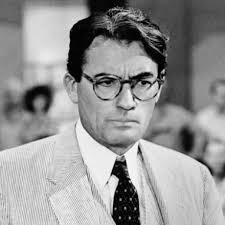date newest »
newest »
 newest »
newest »
message 1:
by
Randy
(new)
Feb 27, 2020 05:19AM
 I wonder if anyone else sees how this analogy can be applied to those who criticize the wealthy for economic inequality.
I wonder if anyone else sees how this analogy can be applied to those who criticize the wealthy for economic inequality.
reply
|
flag
 This kind of breakdown illustrates how everything is just a matter of perspective. It makes me think of Nietzsche's definition of heroic: to go to meet simultaneously one's greatest sorrow and one's greatest hope.
This kind of breakdown illustrates how everything is just a matter of perspective. It makes me think of Nietzsche's definition of heroic: to go to meet simultaneously one's greatest sorrow and one's greatest hope.I also like how you point out that the villain isn't necessarily bad, their worldview just causes them to act in a certain way to achieve their goals. I can no longer remember whether it was Peterson or Nietzsche who spoke about this (probably both in similar fashions) but good morality is merely that which agrees with a social group. Bad morality is what sees you ostracised.
Of course, that's an entirely different discussion, whether there is an absolute Right and Wrong.
 Yet to have a great piece of writing you need convincing villain in order to show anything interesting in hero's character. Without great villain, hero is flat, ordinary everday person, not spectacular. To make hero shine you ned to construct contrasting background and character. In another word you have to show how somebody is a villain. Everone on the Hero's list is also villanous, but the popular narations goes one direction. Chaos is unbearable. Multiple points of views are unbearable in one head. It is nice and cosy to have simple narrations. Great villain does the trick. Makes it all simple.
Yet to have a great piece of writing you need convincing villain in order to show anything interesting in hero's character. Without great villain, hero is flat, ordinary everday person, not spectacular. To make hero shine you ned to construct contrasting background and character. In another word you have to show how somebody is a villain. Everone on the Hero's list is also villanous, but the popular narations goes one direction. Chaos is unbearable. Multiple points of views are unbearable in one head. It is nice and cosy to have simple narrations. Great villain does the trick. Makes it all simple.




